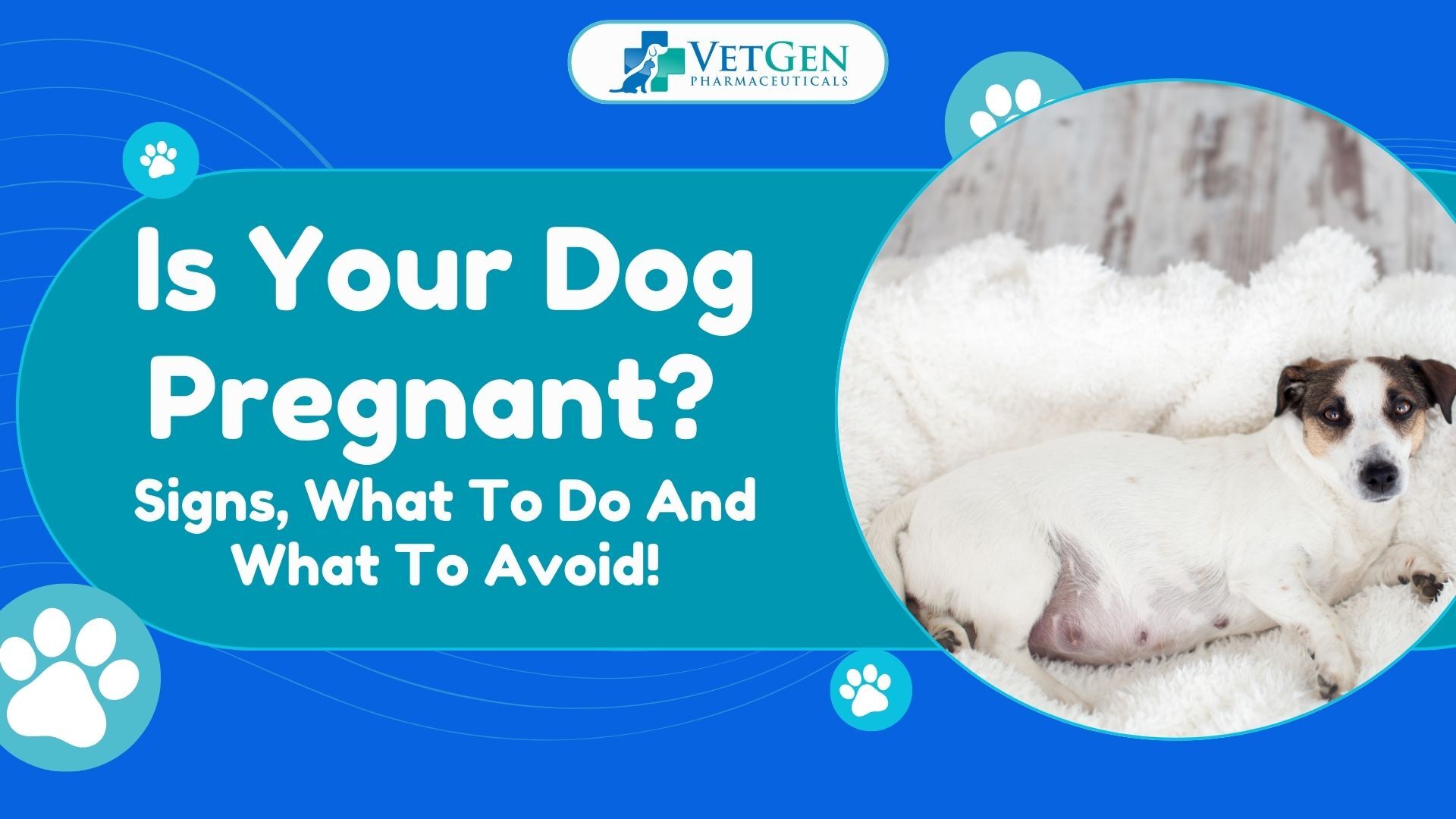If you believe that your pet is pregnant and will soon give birth to a litter of cute puppies, then you are in for a fun and somewhat challenging experience. It is necessary to understand what signs of pregnancy in dogs are, how to handle them, and what should not be done in order to remain healthy and happy. Now, let’s look at all the information you need to know to have a healthy pregnancy for your dog.
Signs That Your Dog is Pregnant
Pregnancy in dogs is not very noticeable in the early stages, and this makes it difficult to notice. Here are the most common signs to watch for:
Change in Appetite
While some pregnant dogs may eat like horses, others may not eat at all during the first few weeks of pregnancy.
Obesity and Central Obesity
Your dog will gain weight during pregnancy and her belly will grow as the pregnancy progresses. This is usually seen in the fourth or fifth week of the treatment.
Nesting Behavior
Towards the end of pregnancy, your dog may start exhibiting signs of nesting, for instance, gathering blankets or going into seclusion.
Enlarged Nipples
Your dog’s nipples may become swollen, black and raised in size. This is a natural preparation for the production of milk.
Mood Changes
While some dogs get playful and friendly, others may get tired and would not want to be disturbed at all. Try to be gentle with her and let her take the initiative.
If you notice any of these signs, you should go to the vet to confirm that your pet is indeed pregnant. A professional can use an ultrasound or palpate the abdomen to know if there are puppies.
What to Do if Your Dog is Pregnant
Schedule a Vet Visit
The first thing that you should do is to consult your veterinarian and get a confirmation of the pregnancy. They will also help in establishing when your dog is due and any other care that your dog needs. She should be observed, and this can only be done through regular antenatal check-ups.
Provide Proper Nutrition
Switch your dog to puppy food or a diet that is appropriate for a pregnant dog. These foods have extra nutrients and energy that the mother will need to support the growing litter. In the last few weeks, try to increase the portions served to her gradually, but do not overfeed her as this will lead to more weight gain.
Create a Comfortable Space
Prepare a warm and quiet area for your dog to rest and later deliver her puppies. A whelping box or a safe enclosed area with soft blankets should be used. The environment should be clean, warm and should not be noisy or congested with traffic.
Monitor Her Activity
She has to walk around to maintain her fitness but should not indulge in any strenuous activities or even rough-plays. It is recommended to take her for a walk and play with her gently to maintain her energy and mood high.
Prepare for Labor
In the last weeks before the due date, familiarize yourself with childbirth. Ensure that you have clean towels, gloves, and your veterinarian’s phone number just in case of any complications. Some of the signs of labor include restlessness, panting and nesting and knowing some of these signs will help you in this process.
What Not to Do When Your Dog is Pregnant
Avoid Stressful Environments
It is also important that your pregnant dog should be calm and relaxed during this period. Avoid taking her to places with loud noises, many people, or anything that may make her stressed.
Do Not Over-Exercise
Light exercise is beneficial to her but when she exercises too much, she puts a lot of stress on her body. It is recommended that she should not perform activities that may put pressure on her or the puppies such as running, jumping or long hikes.
Do Not Self Medicate
Some of the drugs and flea/tick preparations are dangerous to pregnant dogs. As with any medication, it is always wise to consult your vet before administering any medication to your pregnant dog.
Don’t Ignore Unusual Symptoms
If your dog is whining, limping, or acting differently, don’t just ignore it. These could be some signs of some complications and the pet may need the services of the veterinarian.
Do Not Overfeed
She will need more nutrients, but if she is fed too much she will put on a lot of weight and this may be dangerous during childbirth. It is also important that you do not overfeed your pet with food portions that are more than what the veterinarian has advised.
Preparing for the Big Day
Towards the time of delivery, your dog may start to rearrange the blankets or spend most of her time in the whelping box. Make sure that the environment is prepared, with all the necessities at arm’s length. Most dogs are able to give birth without complications but it is advisable to stay close to her and her puppies. If labor appears to be prolonged or if your dog looks distressed, it is time to contact your veterinarian.
Conclusion
Caring for a pregnant dog is a rewarding task that requires care, time and love to be given to the dog. If you are able to recognize the symptoms of pregnancy, take good care of her and avoid these mistakes, you will be preparing her for a safe delivery. Whether it is her first litter or if you are already a breeder, the process is always different.
Just a reminder, you are not only feeding your dog but you are also training to deliver a whole new set of tiny paws into the world. And that is an adventure worth every wag of the tail!






